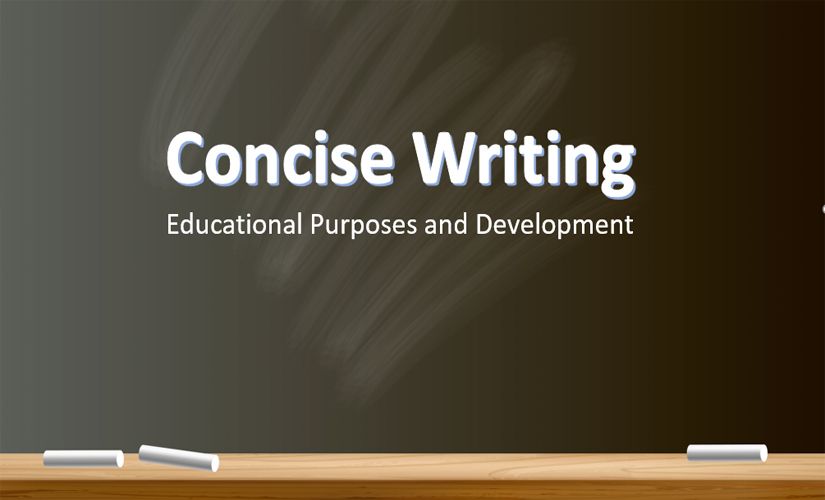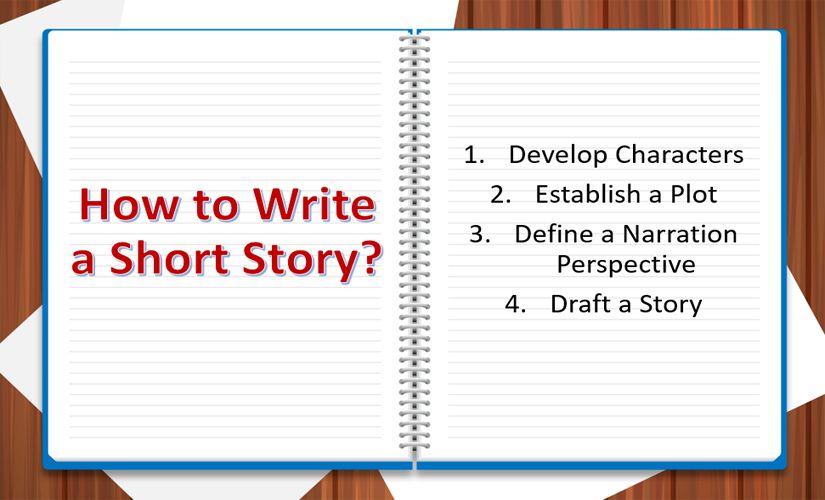Concise writing helps students to develop their thoughts. Basically, schools and other educational institutes teach students how to write clear sentences and express their ideas. In this case, they must use sentences and words that are short and clear for readers. If people write long sentences, readers may lose a sense of the whole paragraph. Therefore, the skill of concise writing is important for any person since it affects readers and their response to ideas in the writing.
General Aspects
Writing for education requires a learner to express his or her thoughts in a clear and accurate way. Basically, teachers assign works to students of different lengths. Tutors and instructors expect quality and clear opinions from learners. In this case, concise writing allows students to use powerful and most persuasive words, including some writing strategies or writing styles. Conversely, detailed narrative writing requires learners to provide a lot of information. Sometimes, in-depth stories are vague due to unnecessary repetitions. Hence, detailed descriptions fail to communicate effectively. As a result, concise writing is better for education than a detailed narrative because it helps learners to make meaningful accounts, develop short and clear statements, eliminate hesitation and doubts, and avoid unnecessary repetitions.

Making Meaningful Claims in Concise Writing
Concise writing is useful for education because it allows learners to make meaningful statements. For instance, the purpose of writing in school is to communicate and express thoughts. In this case, students have to craft sentences that convey information to the assessor. Short sentences have a significant meaning. For instance, using strategies from an explication essay example can show how to craft impactful, precise sentences. Therefore, brief writing makes students use words that contribute to the purpose of a sentence.
Concise Writing and Clear Phrases
Developing concise writing shapes skills in making short and precise phrases. Basically, writing in education requires learners to show their understanding of concepts. The statement implies that students have to use meaningful words when writing. Besides, they eliminate lengthy and confusing statements. Therefore, it involves the replacement of lengthy phrases with short and meaningful ones, which is essential in academic writing.
Eliminating Hesitation and Doubts
Concise writing eliminates hesitation and doubts. In learning, students work as part of a team to collect, share, and evaluate information. For instance, a student should show confidence when appraising information. Higher confidence in writing demonstrates an understanding of themes. In this case, reducing wordiness in writing makes a learner sound confident. Confident learners select adequate and useful words to express their thoughts. Thus, this writing helps learners to express opinions without hesitation or doubts.
Avoiding Repetitions in Concise Writing
Concise writing develops knowledge of how to avoid repetition in writing. For instance, repetition lowers the quality of an assignment. Through this writing, learners review their work and eliminate repeated statements. In this case, they ensure that every sentence contributes to the meaning of the work. Thus, it results in coherent written work.
Detailed Narratives
Detailed narratives are not suitable for education since they contain vague information. For example, students tend to use additional relative clauses and some misappropriate prepositional phrases. Along these lines, they write vague statements as they try to make detailed narratives. Redundant relative clauses and distorted prepositional phrases make information erroneous. Therefore, the in-depth narrative is not suitable for education.
Conclusion on Concise Writing
In conclusion, students must write their sentences clearly and accurately. Basically, they make short and clear statements. Besides, students demonstrate a good understanding of concepts and confidence in expressing their thoughts. Conversely, detailed narratives may encourage learners to use additional specific clauses and misappropriate prepositional phrases. Along these lines, in-depth stories make written work vague. From the findings, concise writing is better than a detailed narrative because it helps learners to achieve their primary education goals. Therefore, it is recommended for students to use this writing in their school work.


